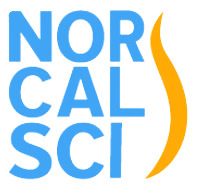No More Knots: Self Release Techniques for those with SCI coming May 13
Do your muscles ever feel tight or restricted? Do you feel like your neck or shoulders have a limited range of motion? Do you like massages? Then this workshop is for you. Join strength and conditioning trainer, Rachel Kahn, and learn how you can use self-release techniques to calm your nervous system, release tension in your body, increase the range of motion of your joints, and move with more ease and freedom. This class is designed for people with spinal cord injuries, so most of these techniques will be demonstrated from a seated position. And it takes place on Thurs., May 13th at 5 p.m. PST for which you can register HERE.
In this “NorCal SCI Presents: Virtual is the New Reality Series” workshop, Rachel will explain the physiological and neurological benefits of various self-release techniques. She’ll share her favorite types of equipment and explain why less is always more when it comes to pressure. Rachel will then take you through a full head, neck, chest, shoulder, and trunk self-release session.
CLASS PREP: This class will be a combination of lecture and hands-on self-release techniques. Come prepared with a slightly squishy ball preferably with some grip to it (THIS one works great). For the last 20 minutes, you can either remain seated or transfer to a bed/floor space as Rachel will be demonstrating some release techniques on the floor on her stomach, side, and back.
This free virtual presentation is funded through a grant by the Reeve Foundation. Once you register, you will immediately receive a confirmation e-mail from us which you should keep for access information to the virtual event. Rachel is a Nationally Certified Pilates Teacher, Certified Strength and Conditioning Specialist, and is currently pursuing her license for massage therapy.

